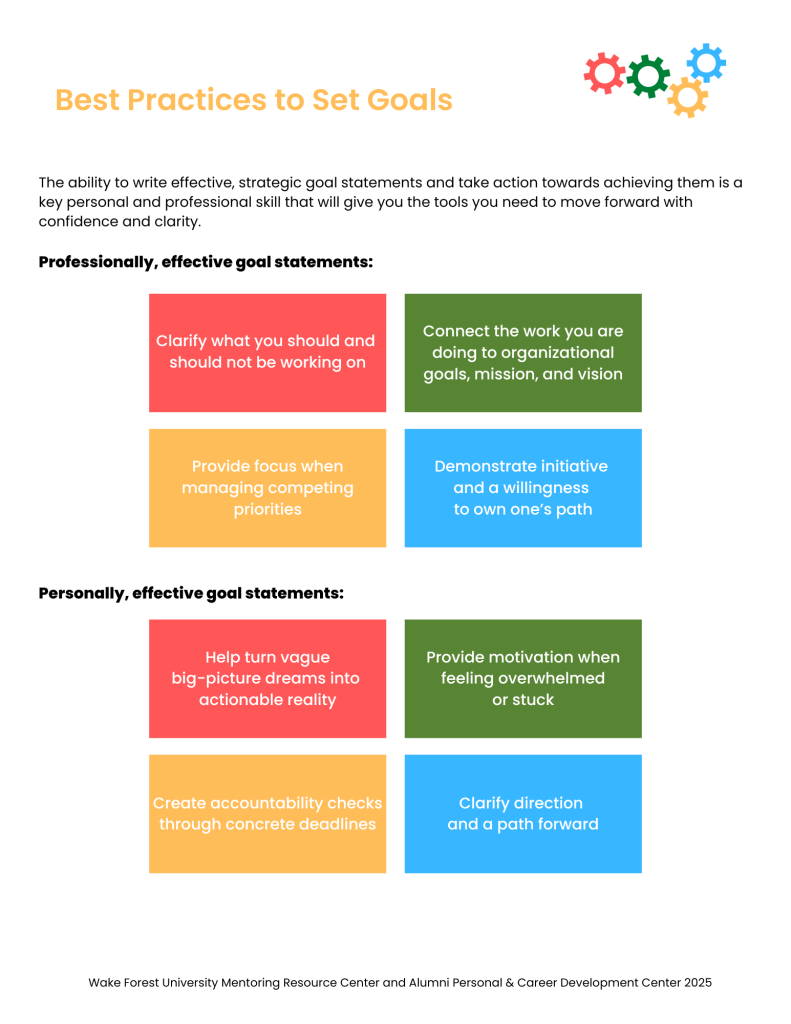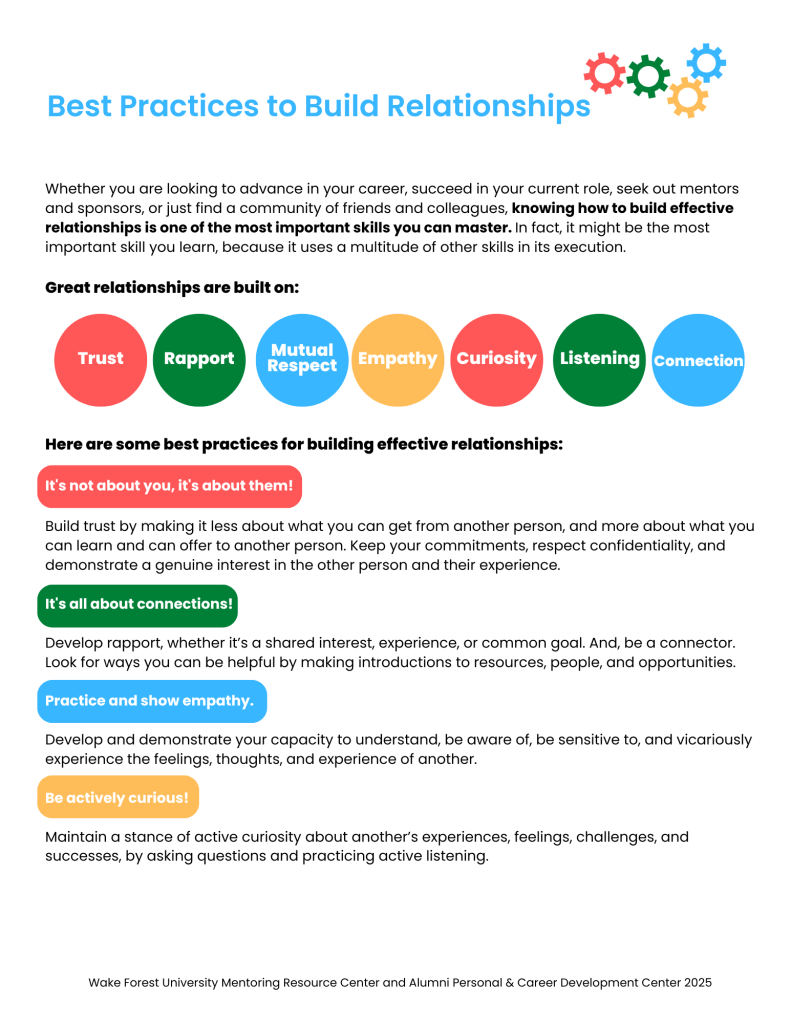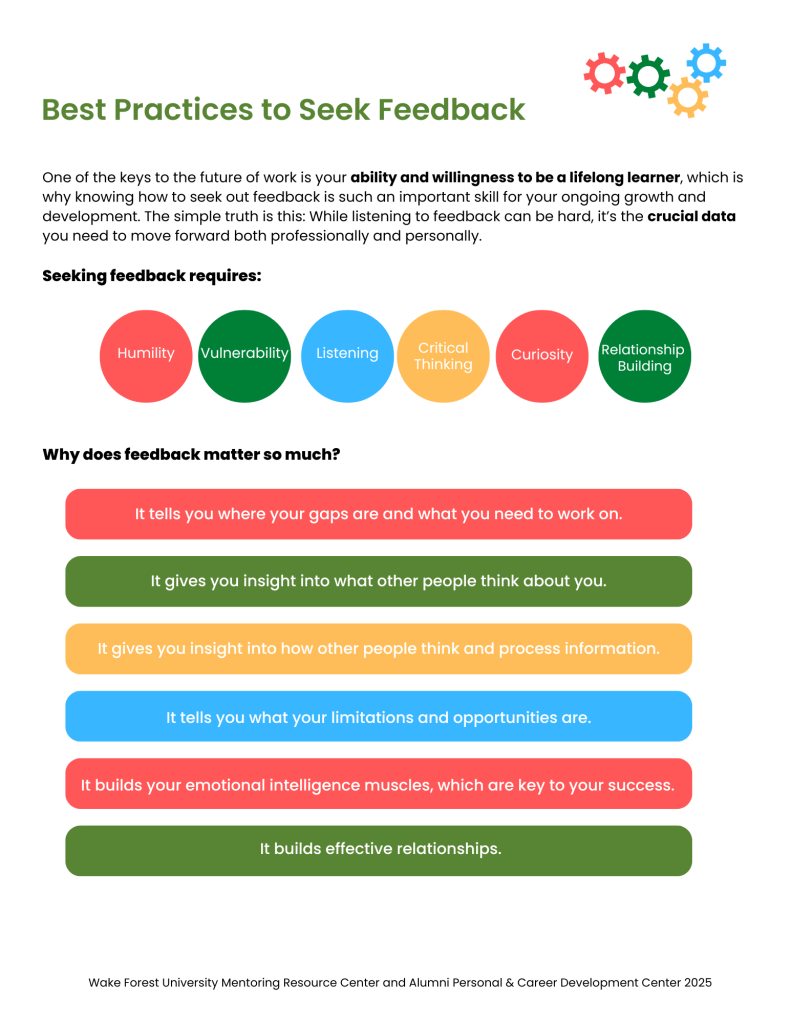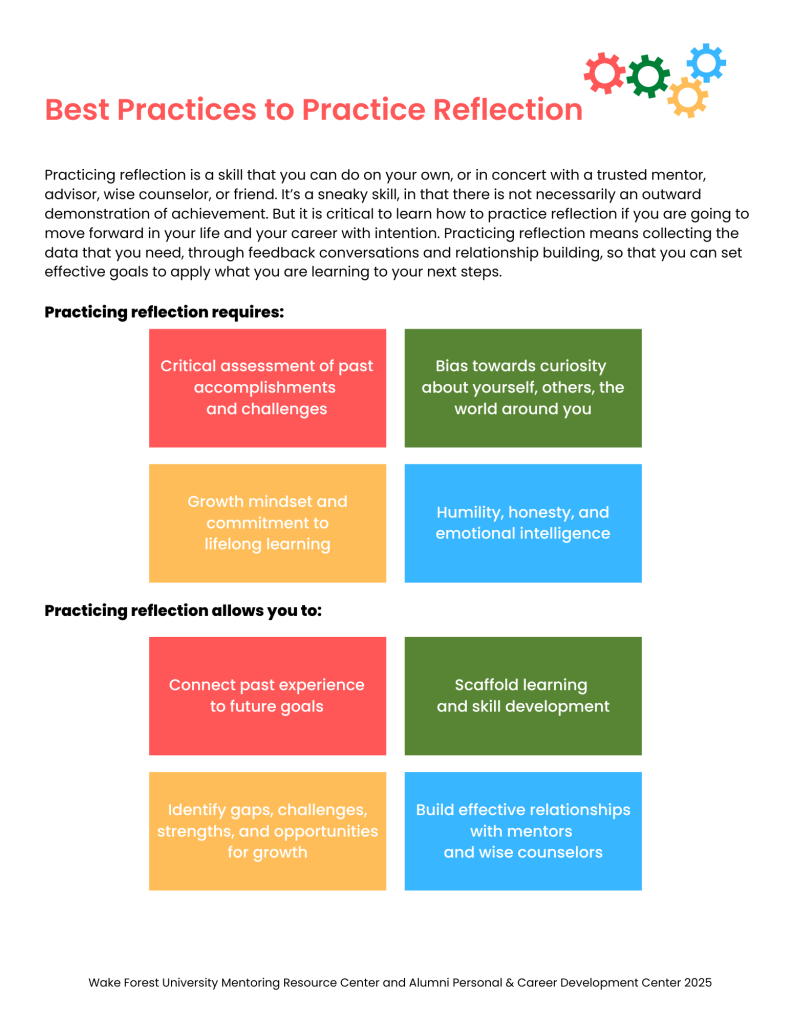COREFour Mentoring Skills
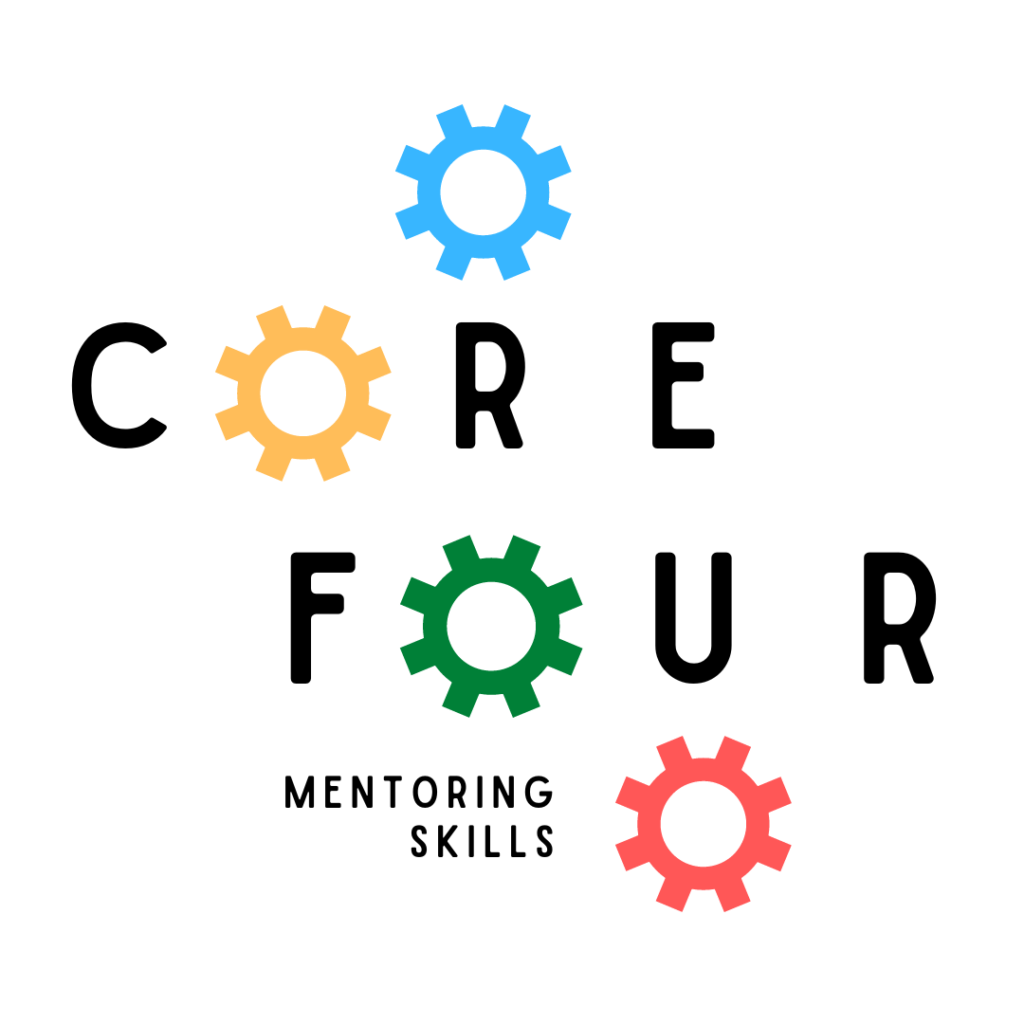

Develop these key skills for the world of work.
As you move through your personal and professional life, you’ll likely find (or have already discovered!) that it’s up to you to build relationships, find the support that you need, and seek out feedback on your work. That’s why it’s so important to learn and develop the COREFour Mentoring Skills!
What are the COREFour Mentoring Skills?




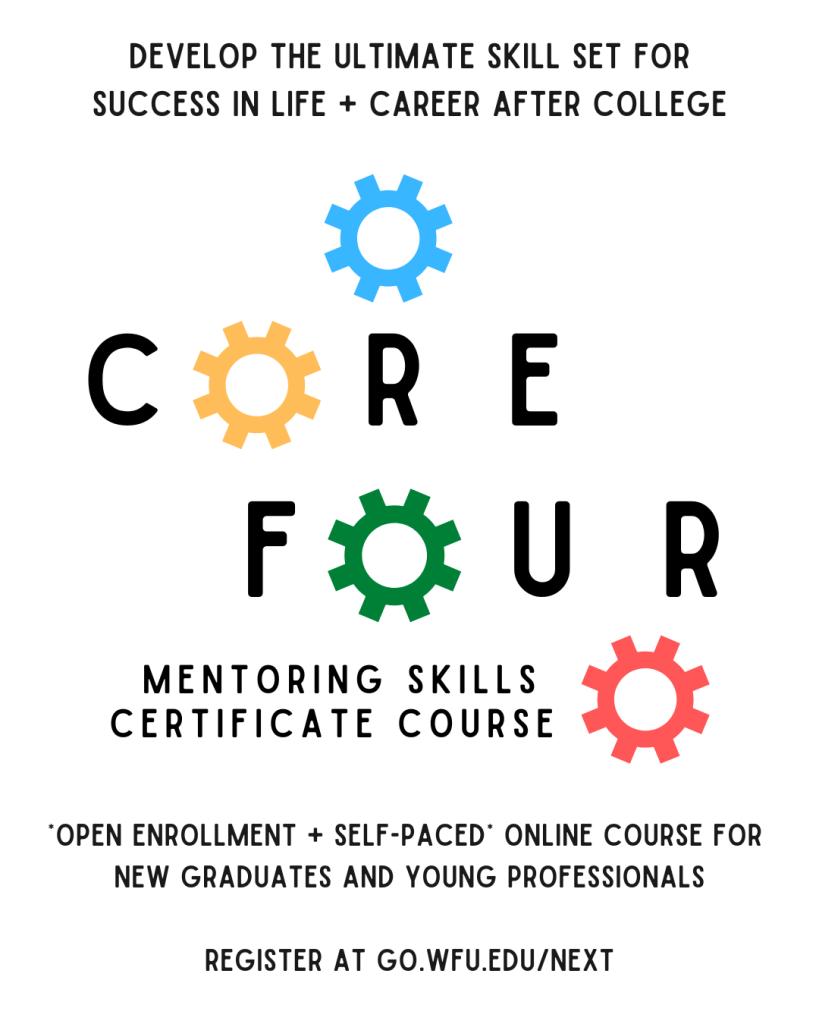
Take our COREFour Mentoring Skills Certificate Course, a self-paced online course designed to help new Wake Forest graduates and young alumni practice and apply key mentoring skills to use in their careers and lives after college.
The course includes five modules that introduce each of the COREFour Mentoring Skills and connects their importance to the world of work. A professional development skills certificate will be available for download after the successful completion of this course.
Download our Best Practice Guides to each of the COREFour Mentoring Skills below.

